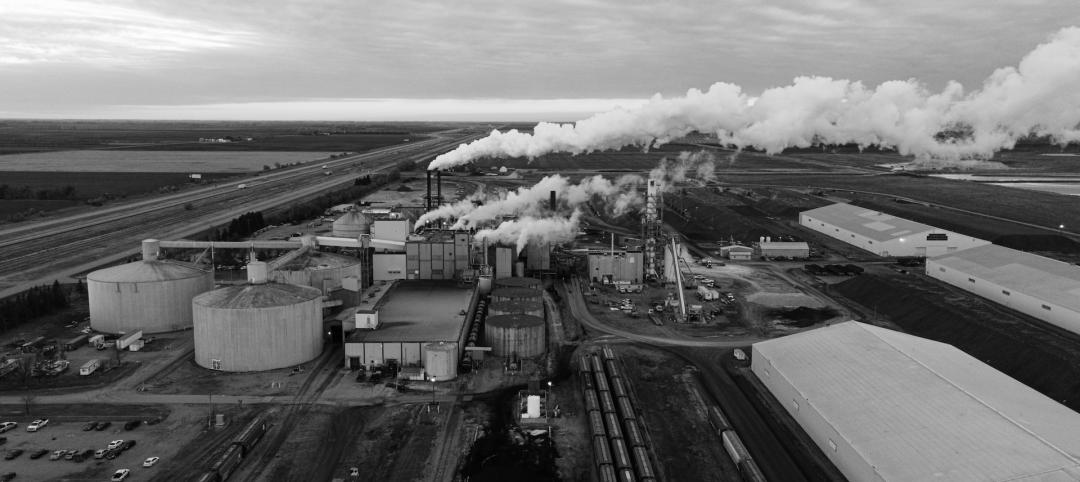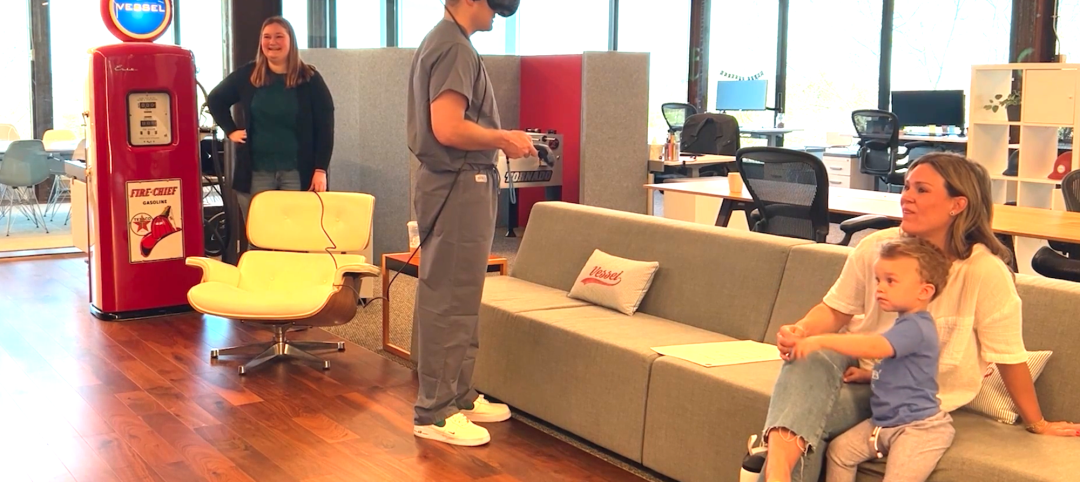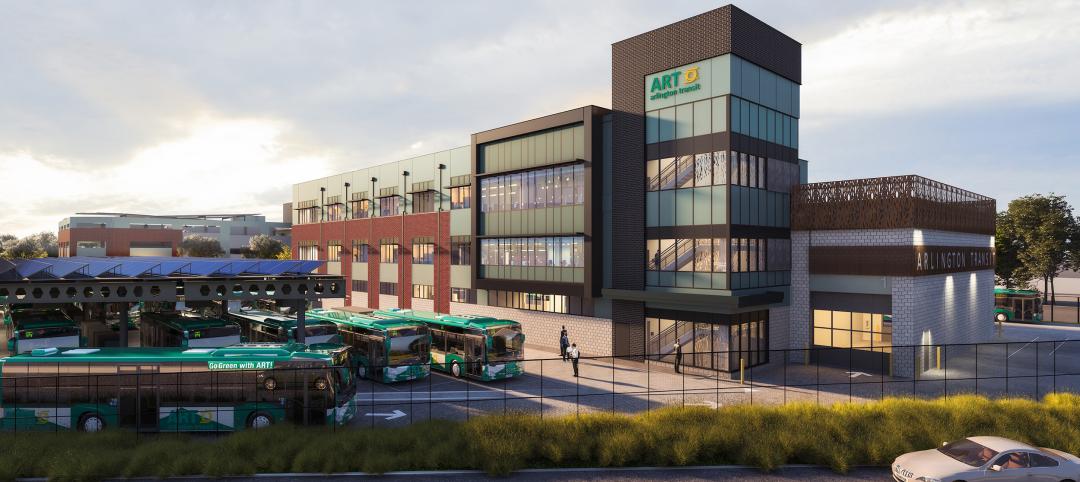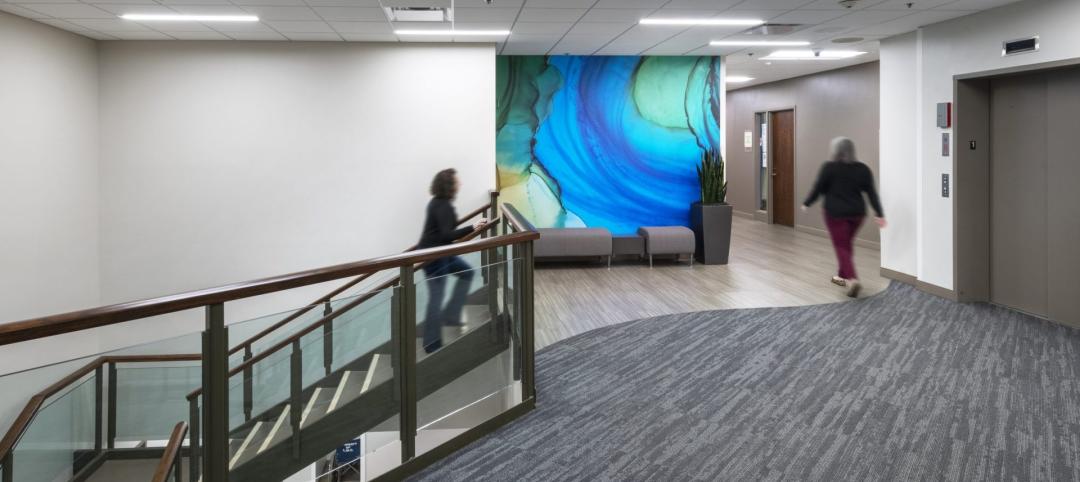The Affordable Housing Design Leadership Institute and Klyde Warren Park have been selected as the 2018 recipients of the Collaborative Achievement Award, which recognizes and encourages distinguished achievements of allied professionals, clients, organizations, architect teams, knowledge communities, and others who have had a beneficial influence on or advanced the architectural profession. The recipients will be honored at the AIA Conference on Architecture 2018 in New York City.
Affordable Housing Design Leadership Institute funded by Enterprise Community Partners
 Photo: Michael Walmsley
Photo: Michael Walmsley
For nearly a decade, the Affordable Housing Design Leadership Institute (AHDLI) funded by Enterprise Community Partners, has been a quiet but powerful force shaping social impact design. Modeled on the Mayors’ Institute on City Design, it assembles development and design leaders to focus on the ways in which architecture can produce more livable and sustainable housing for low- and middle-income people across the United States. During its short life, the institute has had a profound effect on the affordable housing ecosystem and has cultivated partnerships with more than 70 nonprofit and community groups in several communities.
Whether it’s improving four-unit historic buildings that serve a primarily refugee neighborhood in Buffalo, New York, or single-family homes for 300 Native American families in Arizona, the AHDLI process begins with a two-and-a-half-day charrette bolstered by a rigorous design curriculum. In that short time, the institute can radically alter the trajectory of development projects while equipping a new class of leaders with the tools to champion design excellence. Surveys have shown that as a result of AHDLI participation the vast majority of participants work more effectively with designers, address design much earlier in the development process, and ask more of their architect.
AHDLI, founded by Katie Swenson, Lawrence Scarpa and Maurice Cox, is the embodiment of what can happen when architects are fully engaged with leaders from outside the profession. Participants often become instant advocates, and the resulting innovative collaborations directly benefit people and communities in need.
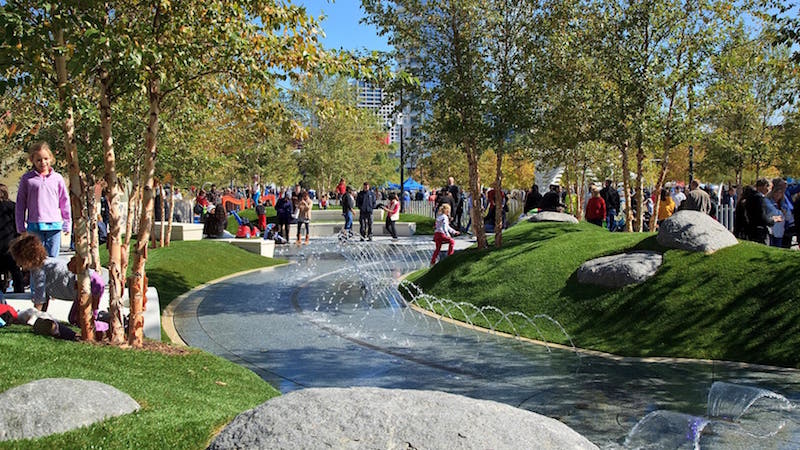 Photo: Dillon Diers Photography.
Photo: Dillon Diers Photography.
Klyde Warren Park healed a rift in Dallas where a freeway once divided two vital sections of the city, overcoming an obstacle that many residents feared was permanent. The park, completed in 2012, required significant funding and buy-in from the public and private sectors, but the efforts resulted in 5 acres of activated, world-class green space that has redefined the city and its self-image.
Designed by The Office of James Burnett, Klyde Warren Park is perched above Spur 366 and caps what was once a high-speed concrete canyon. A feat of engineering, the park’s deck was constructed with more than 300 concrete beams and slabs, a combination that creates trenches that play the role of planting boxes for 37 native plant species and more than 300 trees. LEED Gold–certified, the park relies on a number of practical sustainable strategies resulting in a 40 percent reduction in potable water use. Its trees intercept nearly 25,000 gallons of stormwater runoff and sequester approximately 18,500 pounds of carbon dioxide annually.
Recent studies have shown that the urban oasis has improved the quality of life for more than 90 percent of Dallasites, and has generated more than $1 billion in new development within a quarter-mile radius since the project was announced in 2009. Further bolstering the city’s Arts District, the park abuts the Renzo Piano–designed Nasher Sculpture Center and the Dallas Museum of Art. The entire district saw its economic impact triple, due in large part to a significant increase in street activity since Klyde Warren Park’s completion.
The $97 million project was funded through a combination of city bond, state highway, and federal stimulus funds as well as $55 million in private donations. The project is now managed by the Woodall Rodgers Park Foundation, a nonprofit organization that helped secure early funding for feasibility studies and maintained its momentum during the depths of the Great Recession.
The jury for the 2018 Collaborative Achievement Award includes: Rik Master, FAIA (Chair), USG Corporation; Patrick Burke, FAIA, Columbia University; Lindsey Graff, Assoc. AIA, Ayers Saint Gross Architects; Libby Haslam, AIA, GSBS Architects; and R. Steven Lewis, FAIA, TRC Energy Services.
Related Stories
Architects | Jun 22, 2023
Keith Hempel named President of LPA Design Studios
LPA Design Studios today announced the promotion of Chief Design Officer Keith Hempel, FAIA, to president of the 58-year-old integrated design firm. Hempel, who joined LPA in 1995, has been an integral part of the firm’s growth, helping to develop an integrated design process that has produced industry-leading results.
Industrial Facilities | Jun 20, 2023
A new study presses for measuring embodied carbon in industrial buildings
The embodied carbon (EC) intensity in core and shell industrial buildings in the U.S. averages 23.0 kilograms per sf, according to a recent analysis of 26 whole building life-cycle assessments. That means a 300,000-sf warehouse would emit 6,890 megatons of carbon over its lifespan, or the equivalent of the carbon emitted by 1,530 gas-powered cars driven for one year. Those sobering estimates come from a new benchmark study, “Embodied Carbon U.S. Industrial Real Estate.”
Virtual Reality | Jun 16, 2023
Can a VR-enabled AEC Firm transform building projects?
With the aid of virtual reality and 3D visualization technologies, designers, consultants, and their clients can envision a place as though the project were in a later stage.
Mechanical Systems | Jun 16, 2023
Cogeneration: An efficient, reliable, sustainable alternative to traditional power generation
Cogeneration is more efficient than traditional power generation, reduces carbon emissions, has high returns on the initial investment, improves reliability, and offers a platform for additional renewable resources and energy storage for a facility. But what is cogeneration? And is it suitable for all facilities?
Office Buildings | Jun 15, 2023
An office building near DFW Airport is now home to two Alphabet companies
A five-minute drive from the Dallas-Fort Worth International Airport, the recently built 2999 Olympus is now home to two Alphabet companies: Verily, a life sciences business, and Wing, a drone delivery company. Verily and Wing occupy the top floor (32,000 sf and 4,000 sf, respectively) of the 10-story building, located in the lakeside, work-life-play development of Cypress Waters.
Transit Facilities | Jun 15, 2023
Arlington, Va., transit station will support zero emissions bus fleet
Arlington (Va.) Transit’s new operations and maintenance facility will support a transition of their current bus fleet to Zero Emissions Buses (ZEBs). The facility will reflect a modern industrial design with operational layouts to embrace a functional aesthetic. Intuitive entry points and wayfinding will include biophilic accents.
Urban Planning | Jun 15, 2023
Arizona limits housing projects in Phoenix area over groundwater supply concerns
Arizona will no longer grant certifications for new residential developments in Phoenix, it’s largest city, due to concerns over groundwater supply. The announcement indicates that the Phoenix area, currently the nation’s fastest-growing region in terms of population growth, will not be able to sustain its rapid growth because of limited freshwater resources.
Multifamily Housing | Jun 15, 2023
Alliance of Pittsburgh building owners slashes carbon emissions by 45%
The Pittsburgh 2030 District, an alliance of property owners in the Pittsburgh area, says that it has reduced carbon emissions by 44.8% below baseline. Begun in 2012 under the guidance of the Green Building Alliance (GBA), the Pittsburgh 2030 District encompasses more than 86 million sf of space within 556 buildings.
Industry Research | Jun 15, 2023
Exurbs and emerging suburbs having fastest population growth, says Cushman & Wakefield
Recently released county and metro-level population growth data by the U.S. Census Bureau shows that the fastest growing areas are found in exurbs and emerging suburbs.
Healthcare Facilities | Jun 14, 2023
Design considerations for behavioral health patients
The surrounding environment plays a huge role in the mental state of the occupants of a space, especially behavioral health patients whose perception of safety can be heightened. When patients do not feel comfortable in a space, the relationships between patients and therapists are negatively affected.



